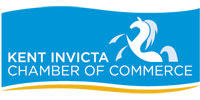By freezing tax thresholds for six more years in today's Autumn Statement, chancellor Jeremy Hunt has increased the tax burden on millions of small businesses in the UK.
As expected, the Autumn Statement has brought in tax rises and spending cuts as the Office for Budget Responsibility (OBR) confirmed that the UK has entered recession and the country continues to wrestle with rampant inflation and a cost of living crisis.
Chancellor of the exchequer Jeremy Hunt announced an extension of the freeze on tax thresholds - including those for the personal allowance, income tax and national insurance - until 2028. These so-called "stealth taxes" mean that people and businesses will be paying more tax as wages rise.
How the Autumn Statement affects small businesses
Key Budget announcements affecting UK SMEs:
- Income tax, personal allowance, national insurance and higher rate tax thresholds are to be frozen until April 2028.
- The threshold for the top rate of income tax is to be reduced from April 2023.
- The VAT threshold has been frozen until March 2026; the VAT rate remains at 20%.
- The National Living Wage and National Minimum Wage rates will see sizeable increases from April 2023.
- The tax-free allowance for dividends will fall from 2023.
- The employment allowance remains at its current level.
- Small businesses are to be protected from business rate rises with a number of measures in 2023. The chancellor promised that two-thirds of properties "won't pay a penny next year".
- Help for energy bills will be extended from April next year but that support will be less generous and small businesses can expect their energy bills to rise in April 2023.
You can read the full round-up of of today's announcements.
All of this comes against a backdrop of unrelenting doom from the Office for Budget Responsibility. It predicts that the UK economy will shrink in 2023 by 1.4% and forecasts that the UK inflation rate will be 7.4% next year. It has also predicted that UK living standards will fall by a staggering 7% over the next two years. Small businesses are facing a double whammy - not only has the cost of doing business soared but consumer spending on non-essentials is likely to plummet.
Reactions to the Autumn Statement
Martin McTague, national chair of the Federation of Small Businesses (FSB): "The slashing of dividend taxation allowances will be a bitter blow to hard-working owners of small limited companies trying to pay the bills, earn a living and grow their business. The changes set out by the chancellor will leave a company director earning £40,000 a year more than £500 worse off than an employee earning £40,000 and paying income tax and national insurance.
"Freezing the threshold for employer national insurance at a time of such high inflation is a stealthy hike in the jobs tax. Alongside the understandable rise in the Living Wage, this Budget will ramp up the costs of employment without offsetting that with measures to reduce other business costs. The few saving graces here are the retention of the Employment Allowance at its current level, which was hard fought for by FSB, and the continuation of the lower National Insurance rate for the self-employed and employees."
Andy Chamberlain, director of policy at the Association of Independent Professionals and the Self-Employed (IPSE): "After the financial damage of the pandemic, exclusion from support, the changes to IR35 taxation, the recent tax hike on dividends and the impending corporation tax hike, this latest attack is further salt in the wound for anyone working through their own company.
"The government is making it harder and harder for those who work for themselves."
"Of course, we need to raise tax to pay for vital public services, but time and again it seems our very smallest businesses are the first targets. We've already seen the number of self-employed fall dramatically since the pandemic - the government seems intent on reducing that number further. By slashing the dividend allowance, the government has once again demonstrated that it does not support small business."
Alan Thomas, UK ceo at Simply Business: "The stealth tax freezes set out in today's Budget will have a huge impact on UK small businesses. Freezing national insurance and tax rates will erode the post-tax income of SMEs at a time when their recovery remains in the balance. Coupled with rising interest rates and inflation, this makes for a worrying combination - especially as a recession looms."
Dave Chaplin, ceo of tax compliance firm IR35 Shield: "There are few surprises in this Budget for contractors that have not already been leaked to the press. Just more tax increases for the self-employed by the so-called party of business who claims it's determined to boost growth.
"But the devil is always in the detail and with the off-payroll legislation set to bring in around £1bn over the next six years I would argue that there are easier ways to grab tax without all the pain that off-payroll working is causing contractors and the firms that hire them … Self-employment continues to be a growing trend, and whilst the Treasury appears to want everyone on payroll, they are swimming against the tide of growing numbers of people who want to be their own boss."
Written by Rachel Miller.
